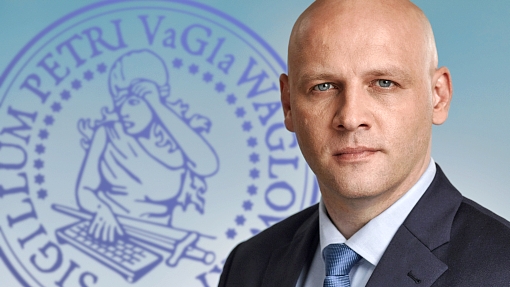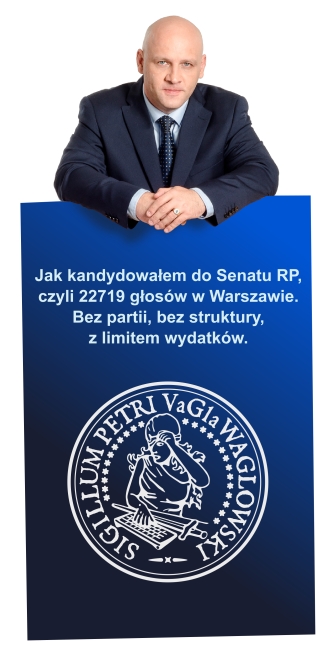Kolejny wyciek materiałów na temat ACTA - stanowiska krajów członkowskich UE
Światło dzienne ujrzał kolejny materiał związany z poufnymi negocjacjami międzynarodowej umowy pn. Anti-Counterfeiting Trade Agreement (ACTA). Na stronach Rady prezentowane są jedynie tytuły dokumentów, ale ani Rada Unii Europejskiej, ani państwa członkowskie, nie chca obywatelom udostępniać posiadanych przez siebie dokumentów na temat projektowanej umowy (por. ACTA: Stanowienie prawa odrywa się od woli obywateli (również w Polsce)). Mimo to Stowarzyszenie ISOC Polska postanowiło złożyć wniosek o udostępnienie informacji publicznej do polskiego Premiera oraz do dwóch ministerstw. Czekamy na odpowiedź. A w międzyczasie zachęcam do lektury najnowszego wycieku - datowanego na 29 października 2009 roku, siedmiostronicowego komentarza Unii Europejskiej do amerykańskiej propozycji.
Wyciek został opublikowany na niemieckim blogu DIGITALE LINKE, a chodzi o materiał EUROPEAN UNION'S COMMENTS TO THE US PROPOSAL SPECIAL REQUIREMENTSRELATED TO THE ENFORCEMENT OF INTELLECTUAL PROPERTY RIGHTS IN THE DIGITALENVIRONMENT 29 OCTOBER 2009.
Dokument zawiera opracowanie spisanych przez kraje członkowskie komentarzy, które trafiły do Komisji Europejskiej i miały być zaprezentowane w trakcie niedawnej, kolejnej już tury negocjacji w Seulu. Dlaczego społeczeństwo musi dowiadywać się o pracach legislacyjnych z przecieków?
A. GENERAL COMMENT
An overarching issue is the relationship between the US proposal and relevant EU legislation. These particular themes relating to the concepts involved the scope of the proposal and the identification of possible conflicts.Scope of the proposal
The US proposal mainly deals with copyright, apart from a single reference to trademarks in paragraph 1. Relevant EU legislation is generally broader in scope and this issue will require further clarification from a policy perspective. This clarification concerns paragraphs 2 and 3 as paragraphs 4 to 7 are only applying to copyright.Concept
The US proposal refers to the "Digital Environment". This seems to imply all digital technologies. Digital technologies are not only used in an online environment but also off-line, for example in CDs, DVDs and Blue Ray. However, this chapter has been nicknamed “the internet chapter”. Does is cover both online and offline?The EU Acquis wording refers to "Information Society Service". This concept defined ISS as "services normally provided for remuneration, supplied at a distance, by electronic means and at the individual request of a recipient of services".
Possible conflicts
1) The US proposal provides for both civil and criminal protection against copyright infringement. This goes beyond the WIPO treaties and the EU Acquis (Directive 2001/29/EC) (CISD) which refers to "adequate legal protection…" without specifying in what this protection would consist of (see 1st comment regarding paragraph 4). Furthermore, the e-Commerce Directive (2000/31/EC) (ECD) applies horizontally across all areas of law which touch upon the provision of information society services, regardless of whether it is a matter of public, private or criminal law. It is not clear how the US proposal interprets this, if at all. For example, paragraph 3.a. is limited to civil remedies
only.2) EU may wish to review the potential implications, if any, with the recently adopted Consumers Rights Directive, which is part of revised Regulatory Framework for Electronic Communications (Telecom Package).
B. DETAILED ANALYSIS
Paragraph 1:
This paragraph on “General Obligations” states that enforcement procedures shall be “effective” and those remedies shall be “expeditious” and “constitute a deterrent to further infringement”. A similar wording can be found in Article 41 of the TRIPs Agreement, in Article 14 WCT (final part of the provision) and Article 3 of Directive 2004/48/EC on enforcement of intellectual property rights (IPRED). However, unlike these latter provisions, the proposal does not state that the procedures etc. also shall be fair, equitable and/or proportionate in relation to, for example, an alleged infringer. Against this background, it appears like the proposed paragraph is not coherent with TRIPs and IPRED.The EU made similar comments on the draft "Civil Chapter", which is still under discussion. A possible solution might be to insert an introductory general provision (which could refer to TRIPS) applying to the whole Agreement.
Paragraph 2:
This paragraph establishes third party liability for copyright infringements.1) Why does the concept of third party liability (TPL) not include Trademark infringements, or
even all IPR infringements?2) This paragraph establishes third party liability without defining the circumstances which would
trigger such liability. The explanations provided in the footnote are not sufficient to clarify the
circumstances; furthermore, their legal effect is unclear.EU understands this paragraph and accompanying footnotes as providing for an international minimum harmonization regarding the issue of what is called in some Member States "contributory copyright infringement". This concept does not exist in the current Acquis communautaire and in the law of several Member States. As such, the use of this term should be avoided.
The principles which underlie the concept of "contributory infringement" vary substantially from country to country. Hence, some of the terms used in the footnote 1, for example “inducing”, have no clear meaning at international level or in most Member States and it is thus also unclear whether national provisions on "contributory infringement" satisfy the proposed standard.
As there is not harmonization regarding the issue of "contributory copyright infringement" at EU level, a provision with this meaning would go beyond the present Acquis communautaire. It should however be noted that Member States have agreed, as regards the provisions on criminal enforcement, on the wording “inciting, aiding and abetting.”
Furthermore, while accepting the necessity to ensure legal certainty, the current EU policy is not to specify the exact circumstances triggering liability (there are many and there are often differences between Member States). EU legislation only provides for clear exemptions: the ECD does not regulate what is third party liability; it only provides for exemptions from the ISP liability for third party's illegal content/activities.
3) Finally, footnote 2 appears to be acceptable, as this paragraph is wider than online activities. It is also in line with the EU proposal to include intermediaries in some provisions of the civil chapter.
Paragraph 3:
This paragraph defines the circumstances under which third party liability may be limited. In principle, the definition of such circumstances is acceptable and necessary, and may be retained.
However, the proposed text, i.e. the conditions to be fulfilled in order to benefit from the exemption of liability, requires significant modifications in order to be acceptable.1) The first two sentences of this paragraph have the nature of a recital. While the principles referred to are acceptable, they spell out general objectives and considerations, so they are at least in the wrong place.
2) In the third sentence, there is only reference to “facilitate the continued development of industry”. This is much too limited as the overarching objective for the most important provision of this chapter. This is a very important deficit of the current text. It is politically very important to emphasize balance and fairness, to mention culture and individual creators and not only industry.
EU would, for reasons of clarity, suggest deletion of paragraph 3 from the beginning: "Each party recognizes that some persons …" until the sentence: "…infringements are available and reasonable…"
So, EU would suggest that paragraph 3 starts with: "Each party shall: and then continue with letters (a) and (b).
3) In footnote 3 a clarification of the notion of “enterprise” is necessary and the possibility to align with the notion of "legal person" should be explored.
4) Footnote 4 covers the definition of “ISP”. The proposed definition lists several activities as the determining factor. The terminology is not very clear. For example, what is the scope of “providing of connection”: do they intend to cover all networks? Does it only cover digital online? Why is it necessary that the user specifies the points? Changes in technologies may make the definition void.
This is not the approach we have followed in the CISD and the IPRED where the more general term "intermediary" is used.
Furthermore, the ECD does neither contain a definition of "online service provider" nor the term ISP. It relies on the definition of information society services (ISS) found in Directive 98/34/EC as amended by Directive 98/48/EC.
Paragraph 3(a)
EU understands the wording of paragraph 3(a) as stipulating the limitation (exemptions) for online intermediaries from the liability for third party illegal content or activity, which is either transmitted, cached or hosted by the online intermediaries (in the meaning of ECD, Articles 12-15).Therefore, in our understanding,
1) first of all, the wording of paragraph 3(a) (i) – (iii) should not set cumulative conditions –but separate conditions so the word "and" at the end of each point (i) –(iii) should be replaced by the word "or".This would be in line with the ECD given that in the US proposal:
(i) - automatic technical process – refers to "mere conduit" (Article 12 ECD)
(ii) – no action or initiation or selection by the provider – refers to both types of activities – "mere conduit" and "caching" (Articles 12-13 ECD)
(iii) – referring or linking to an online location – refers, according to US, to "search engines". As regards "non-commercial" hyperlinks, these could, in our view, be accepted as an extension of "hosting" (ECD, Article 14). Such hyperlinks are not explicitly regulated by the ECD. The liability of providers for hyperlinks and location tool services has been deliberately left out from the scope of the ECD. However, we believe that non-commercial hyperlinks could be treated as a hosting activity under Article 14 ECD.
2) Logically the exoneration criterion of "actual knowledge" cannot apply to point (i) as this indicates pure "mere conduit" activities. Such activities logically cannot lead to having or not having knowledge about something since these processes are purely automatic technical processes.
On the other hand, Articles 13 -14 ECD (Caching and Hosting) both provide for the notion of "actual knowledge" (Articles 13.1. (e) and 14.1. (a)) thus the provider cannot be held liable if he does not have actual knowledge about the infringing activities.
3) Footnote 5 states that "for greater certainty…". EU wishes clarification of this wording and seeks concrete examples in order to understand why this footnote is so important for greater certainty. Furthermore, if it is so important, why is it not in the text of the provision itself?
Paragraph 3(b)
The aim of paragraph 3(b) is to establish a system that can be considered to make the exemptions from liability subject to specific conditions: notice-and-take down procedure to address the unauthorized storage or transmission of materials protected by copyright or related rights. Such an obligation is currently not found in the ECD.1) We would like to first ask the US to explain how this paragraph is intended to work in practice and to give us a precise example of what this paragraph aiming at. For instance, does this paragraph mandate filtering by the ISP in his network?
2) The proposed paragraph 3(b)(i) adds an important prerequisite for the limitations on liability to apply: the intermediary must adopt and reasonably implement a policy “to address the unauthorized storage or transmission of materials protected by copyright or related rights”. This prerequisite has no equivalent in the ECD. In fact, the proposed provision adds a condition for the limitations on liability to apply and, thus, is going beyond the Acquis communautaire.
3) EU understands that footnote 6 provides for an example of a reasonable policy to address the unauthorized storage or transmission of protected materials. However, the issue of termination of subscriptions and accounts has been subject to much debate in several Member States. Furthermore, the issue of whether a subscription or an account may be terminated without prior court decision is still subject to negotiations between the European Parliament and the Council of Telecoms Ministers regarding the Telecoms Package.
4) EU concern is that the paragraph 3(b)(ii) aims at implementing a notice and take down procedure which might not be compatible with the ECD. The ECD leaves this aspect to selfregulation and does not make it a binding condition to benefit from liability exemptions.
This goes beyond the requirements stipulated by the ECD. The ECD allows the Member States however in Article 13(2) and 14(3) ECD to require the service provider to terminate or prevent an infringement and further enables the MS to establish procedures governing the removal or disabling of access to information. Further Article 16 of the ECD encourages the drawing up of codes of conduct.
5) Does the concept of “conduit for transmission” (3.b. last sentence) also includes caching or is limited to "mere conduit"?
Paragraph 4:
This paragraph relates to obligations concerning Technical Measures.1) It is not clear if the scope of the provision covers only phonogram author rights and neighbouring rights (performers, producers) or do the definition of “author” also includes film, audio, literature.
2) This paragraph and its accompanying footnotes regarding the circumvention of effective technological measures provide that Parties shall provide for "civil remedies, as well as criminal penalties".
Article 11 of the WCT and Article 18 of the WPPT state that "Contracting Parties shall provide adequate legal protection and effective legal remedies” without however specifying in what this protection would consist. In addition, Article 6 CISD merely refers to “adequate legal protection” against circumvention and any preparatory acts. This provision of the CISD leaves a reasonable margin of discretion to Member States in how to implement this obligation. The proposed Paragraph 4 goes therefore beyond the current Acquis communautaire.
3) When referring to WCT and WPPT, do we have to interpret this clause as meaning that contracting states have to adhere to both these treaties? If so, then do we not unnecessarily exclude states which want to adhere to ACTA but do not want to adhere to WCT/WPPT?
4) EU notes the absence of any (explicit) link between the legal protection of TPM and exceptions and limitations to copyright/ related rights. WCT and WPPT provisions refer to "TPM that restrict acts, in respect of works of the rights holders, which are not authorized by the right holders or permitted by law ". CISD provides for a special regime of voluntary and appropriate measures in how to safeguard the benefit of certain exceptions by voluntary measures and appropriate measures (Article 6(4)).
5) Paragraph (4) and accompanying footnote 7 requires that the protection against circumvention of technological measures shall also apply to technological measures which protect merely “access” to a work.
The WCT, WPPT and Article 6(3) CISD do not require that the contracting Parties and Member States provide for protection for technical measures beyond acts of reproduction and making available to the public. The proposed paragraph and accompanying footnote may require that the contracting Parties also provide protection for non-copyright-relevant acts or measures. One example of such measures are a so-called “regional lockout”, e.g. a measure preventing that a DVD bought in one country or region (e.g. USA) can be played in DVD players in other countries or regions.
It should be made clear be made clear that one should only protect TPM that restrict acts which come within the scope of the exclusive rights (authorized by the right holder).
Paragraph 5:
This paragraph relates to independent civil and criminal enforcement of paragraph 4 (independent of any infringement of copyright or related rights) and to limitations to paragraph 4.1) Regarding civil and criminal enforcement, see comment under paragraph 4, point 2.
2) Footnote 8 seems to govern “interoperability” issues, i.e. the ability of consumers to play, for example, music which they have downloaded legally, on different players such as an iPhone or a Microsoft Media Player. The footnote seems to be intended to make sure that contracting Parties do not require that such interoperability must be achievable. Recital 48 to CISD also deals with interoperability. The latter, however, uses the wording “implies no obligation”, which is something completely different than the wording in the proposed footnote “may not require”. We also note that the proposed footnote is not fully in line with recital 53 to the CSD, which states that “Compatibility and interoperability of the different systems should be encouraged.”
The way in which interoperability (market driven or imposed by Member States) is achieved is not defined at EU level and MS retain all powers to legislate in this respect.
Paragraph 6:
This paragraph focuses on Rights' Management.Regarding civil and criminal enforcement and "adequate legal protection" wording, see comment under paragraph 4, 2).
Paragraph 7:
This paragraph focuses on limitations of paragraph 6.Why is this a separate point (different from paragraph 5) and why is the language not the same as in the second sentence of paragraph 5? Why a formulation different to the one used in paragraph 5?
Następne tura negocjacji planowana jest na styczeń 2010 roku w Meksyku...
- Login to post comments
Piotr VaGla Waglowski

Piotr VaGla Waglowski - prawnik, publicysta i webmaster, autor serwisu VaGla.pl Prawo i Internet. Ukończył Aplikację Legislacyjną prowadzoną przez Rządowe Centrum Legislacji. Radca ministra w Departamencie Oceny Ryzyka Regulacyjnego a następnie w Departamencie Doskonalenia Regulacji Gospodarczych Ministerstwa Rozwoju. Felietonista miesięcznika "IT w Administracji" (wcześniej również felietonista miesięcznika "Gazeta Bankowa" i tygodnika "Wprost"). Uczestniczył w pracach Obywatelskiego Forum Legislacji, działającego przy Fundacji im. Stefana Batorego w ramach programu Odpowiedzialne Państwo. W 1995 założył pierwszą w internecie listę dyskusyjną na temat prawa w języku polskim, Członek Założyciel Internet Society Poland, pełnił funkcję Członka Zarządu ISOC Polska i Członka Rady Polskiej Izby Informatyki i Telekomunikacji. Był również członkiem Rady ds Cyfryzacji przy Ministrze Cyfryzacji i członkiem Rady Informatyzacji przy MSWiA, członkiem Zespołu ds. otwartych danych i zasobów przy Komitecie Rady Ministrów do spraw Cyfryzacji oraz Doradcą społecznym Prezesa Urzędu Komunikacji Elektronicznej ds. funkcjonowania rynku mediów w szczególności w zakresie neutralności sieci. W latach 2009-2014 Zastępca Przewodniczącego Rady Fundacji Nowoczesna Polska, w tym czasie był również Członkiem Rady Programowej Fundacji Panoptykon. Więcej >>








Bardzo zabawnym jest...
...zastanawianie się co jest w tekście komentowanym na podstawie komentarzy. Trochę taki reverse engineering. Z uwagami się często zgadzam, ale obraz jaki się zza nich wyłania jest dość przerażający.
1% na Fundację Nowoczesna Polska, KRS: 0000070056;
Jako ciekawostkę warto
Jako ciekawostkę warto wspomnieć, że termin "contributory copyright infringement" pojawił się bodaj po raz pierwszy w USA w sprawie Grokster’a. To chyba pierwszy tak widoczny "wkład" sieci p2p w prawodawstwo.
Choć nie wynika to jednoznacznie, jak dla mnie nie ma wątpliwości, że w ACTA jest zawarte słynne już „three-strikes and you're out”.
Uwagi UE są zrozumiałe i rzeczowe. Nie zmienia to faktu, że im więcej wiem tym bardziej słusznym wydaje mi się nazywanie ACTA globalnym DMCA.
pozdrowienia, Michał
I dyskutuje się zmianę paradygmatu
I dyskutuje się zmianę paradygmatu odpowiedzialności usługodawców z zasady nieodpowiedzialności przy braku wiedzy (w koncepcji notice and takedown) na odwrotną.
--
[VaGla] Vigilant Android Generated for Logical Assassination
Knock knock
Knock knock ACTA, it’s the Internet. - list do - jak wynika z podtytułu - "Dear ACTA Secret Committee".
A przy okazji: EU ACTA leak confirms global DMCA plans i jeszcze Europe Worries U.S. Bowing to ‘Industry’ in ACTA Talks (tu, na końcu, pada stwierdzenie: "The Obama administration, which has five former Recording Industry Association of America lawyers in the Justice Department, has declared ACTA negotiations a “national security” secret.").
Jest też oświadczenie (NDA, Non Disclosure Agreement), które należało podpisać, by zapoznać się z dokumentacją ACTA...
Trzeba też sięgnąć do: European ISPs Lash out at Secret ACTA Negotiations oraz Åsa Torstensson visits Washington DC.
Jeszcze na temat ACTA:
--
[VaGla] Vigilant Android Generated for Logical Assassination
Dla obowiązywania prawa promulgacja jest nieistotna?
Tak mogłoby się wydawać po lekturze depeszy PAP Publikacja Traktatu Lizbońskiego za kilka dni, w której czytam: "Traktat Lizboński, który dziś zaczął obowiązywać w całej Unii Europejskiej, zostanie w ciągu kilku dni opublikowany w Dzienniku Ustaw..."
--
[VaGla] Vigilant Android Generated for Logical Assassination
źródło
Cały czas zachęcasz swoich czytelników do weryfikowania informacji u źródła, a sam ... (no, nie sam).
Konstytucja w zamkniętym katalogu źródeł prawa, które wymagają ogłoszenia, nie wymienia ratyfikowanych umów międzynarodowych.
1. Warunkiem wejścia w życie ustaw, rozporządzeń oraz aktów prawa miejscowego jest ich ogłoszenie.
Sposób wejścia w życie traktatu
Ale już 3 punkt przywołanego przez Pana artykułu mówi, że
Ponieważ istnieje ustawa o ratyfikacji Traktatu Lizbońskiego (Dz.U. 2008 nr 62 poz. 388), oznacza to, że traktat lizboński powinien przed wejściem w życie być ogłoszony w Dzienniku Ustaw.
rozrózniamy "wejście w życie" od "ogłoszenia"?
Ust.3 nakazuje umów międzynarodowych ogłoszenie. Nie jest to warunek konieczny do wejścia w życie ratyfikowanej umowy międzynarodowej.
Zgadzam się, że sytuacja jest porąbana. Ale czego spodziewać się po prawnikach, którzy od tysięcy lat piszą i interpretują prawo i nie mogą uzyskać zadawalającego rezultatu :-) Gdy programiści tworzyli systemy takiej jakości, to ... nie doszłoby do tej wymiany myśli z przyczyn technicznych.
Znajomość nieogłoszonego prawa
Pojawia się zatem bardzo ciekawa sytuacja. Oto działa prawo, które mam przestrzegać, i od którego nieznajomości nie ma w systemie prawnym usprawiedliwienia, jednocześnie nie mając możliwości poznania prawa, którego nie znajomość nie chroni mnie przed konsekwencjami. Oczywiście można znaleźć w EUR-lex traktat ustanawiający UE ze zmianami wprowadzonymi przez traktat z Lizbony, lecz jak podaje informacja na tej stronie
Oznacza to, że to, co tam przeczytam nie jest wersją ostateczną, którą mogą się posługiwać sądy przy ocenie ewentualnych sporów dotyczących konkretnych przepisów w czasie od 1 grudnia do czasu ogłoszenia w Dzienniku Ustaw, gdyż tylko tam ogłoszone, jak rozumiem, akty otrzymują swoje ostateczne i prawnie wiążące brzmienie.
Wychodzi na to, że gdyby do sądu wpłynęła jakaś sprawa, która zahacza o kwestie wynikające z traktatu z Lizbony, to sąd musiałby chyba odroczyć rozprawę do czasu ogłoszenia tekstu ujednoliconego, na podstawie którego mógłby wydać wyrok, co jest absurdem lub powołać biegłego tłumacza do przetłumaczenia, co jest jeszcze większym absurdem, bo wyobrażam sobie odwołanie wskazujące na rozbieżności w tłumaczeniu biegłego i Dziennika Ustaw.
To wypowiedź
polskiego premiera. Nawet człowiek takiego formatu jak on może się fatalnie pomylić. Bardzo mnie rozbawiło, jak w projekcie przeczytałem:
W sumie to i lepiej, że nie po...Niemniej, szkoda i tego biednego wyborcy, który zadał sobie trud i przeczytał opasłe tomiszcze, a po fakcie mogło się okazać, że traktat miał niewielkie usterki.
Wojciech
a co miał
a co miał napisać:
"zgodnie z przyjętą praktyką polską wersję językową zredaguje firma, która wygra przetarg ze względu na cenę, a potem zleci całość roboty studentom filologii, którzy zrobią to najtaniej"
I jeszcze jeden interesujący tekst
A tu jest jeszcze jeden interesujący głos: ACTA's Hypocrisy Is a Net Security Holdup, który zaczyna się od słów: "Fundamentally, I support the Anti-Counterfeiting Trade Agreement (ACTA), by which the U.S. wants foreign ISPs to help enforce copyright protections..."
--
[VaGla] Vigilant Android Generated for Logical Assassination
Article 2.17: Enforcement procedures in the digital environment